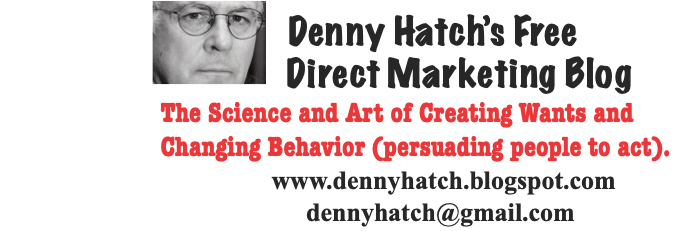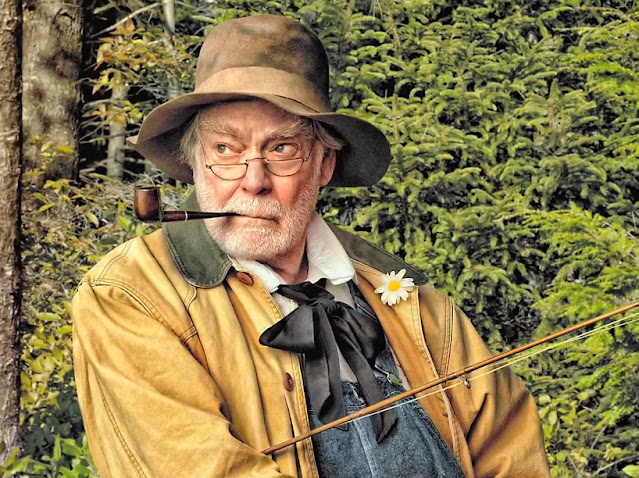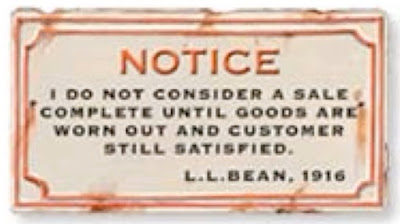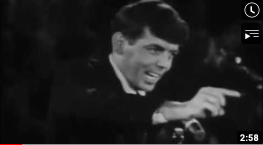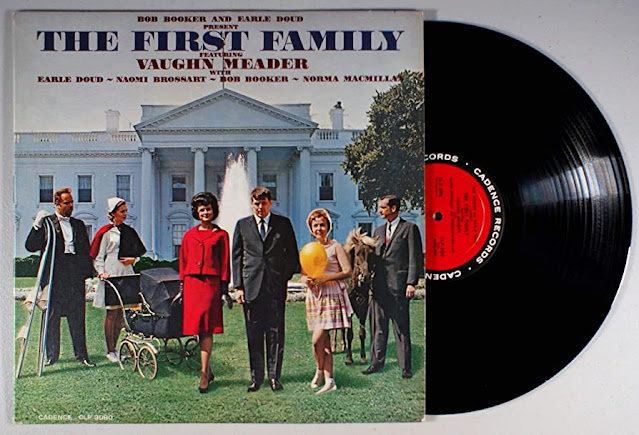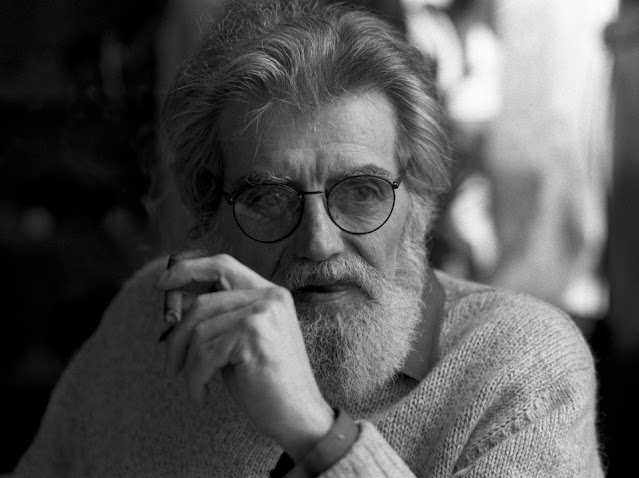http://dennyhatch.blogspot.com/2022/11/173-twitter-layoffs.html
#173 Blog Post - Wednesday, November 9,
2022
Posted
by Denny Hatch
If You (or a Friend) Work
for Twitter,
This Riveting Story Will Be Helpful
This one-shtick comic became the second most famous man in America—no kidding!
Two years later tragedy struck the country, he was out of a job and
vanished.
In 1961, Vaughn Meader, was a 25-year-old kid just out of
the Army. He started out honing his act and earning a meagre living as a
singer/piano player in little clubs and bars around New York. He tried spicing up
his act with comedy material and was getting a few laffs.
Born and raised in Waterville, Maine, Vaughn had a New
England accent. In one of his seedy venues someone pointed out to him that his
voice sounded exactly like that of America's newest national heart throb,
recently elected President John F. Kennedy. Vaughn began injecting Kennedy
impressions into his monologues and creating a minor sensation in the little gin
mills where he landed performing gigs.
Enter the Wizardry of Earle Doud
In 1958-1960 I was a student at Columbia College
and had a part-time job nights and weekends as an NBC page. A regular part of
my beat was arriving late in weekday evenings at NBC's Hudson Theater on West
44th street where I was stationed at the stage door or worked at seating
audiences for the great Tonight Show host/comedians—Steve Allen, Ernie
Kovacs and Jack Paar as well as guests performers such as Jonathan Winters and
Jackie Gleason. At the theater was always a gaggle of comedy writers hovering
in the background providing funny lines for the cast and looking to be paid by
the joke. Among them: Mel Brooks, Woody Allen, Carl Reiner and a good-looking
dude, Earle Doud.
Earle Doud (1927-1998)
Over his career, Doud wrote Jokes for a Who's Who
of American television comedians of the time—Jackie Gleason, Johnny Carson, Sid
Caesar and so many more. That year, 1962, Doud was tipped off about a guy
around town who was doing spot-on impersonations of President Kennedy. At a
small club he attended a performance by Vaughn Meader. He was dazzled by the
John F. Kennedy impersonations and immediately began providing jokes. A
sampling of the Doud-Meader collaboration:
https://www.youtube.com/watch?v=Bi2VBOeAfLw
The similarity was truly uncanny. Here's the real
President Kennedy:
https://www.youtube.com/watch?v=oC8ViHIuwuM
Doud began writing jokes for Vaughn Meader and the young
performer began generating notoriety and appearing in larger venues such as colleges
and town halls. Here's part of a routine:
https://www.youtube.com/watch?v=35aO9GdOAZ0&t=10s
Earle Doud finally bit the bullet and wrote a
full-fledged comedy album that was a good-natured spoof of the sainted
Kennedys. (None of the vicious vitriol of today's satire on, say, SNL and late
night.) Doud and his partner, writer and television producer Bob Booker,
persuaded a small recording company (not, for example, RCA, Columbia or
Capitol), Cadence Records that specialized in the spoken word (as opposed to
music) to produce it.
The recording session took place on October 22, 1962,
with Vaughn Meader as President Kennedy and Naomi Brossart as First Lady Jacqueline
Kennedy.
A Boffo Blowout!!!
• The
First Family became the fastest selling record in history.
• The
First Family sold one million copies a week in the first six weeks.
• It was #1
on the Billboard 200 charts for 12 weeks.
• By January
of the following year 7 million albums had been sold.
• Excerpts
were a craze on radio nationwide.
•
Everywhere—on radio, TV, at dinner tables and in bars and restaurants—the
memorable punch lines from The First Family were being quoted by
delighted Americans.
• Meader's
career took off like a rocket with features in TIME and LIFE, with live
performing gigs all over the U.S. including guest appearances on top-rated
television (e.g. The Ed Sullivan Show). What's more, Vaughn played to
packed houses in Las Vegas.
• In short,
twenty-five year-old Vaughn Meader had become the second most famous man in
America.
• The
First Family won the Grammy for Best Album of the year 1963.
• Jack
Kennedy was so amused that he bought 100 albums to give as Christmas presents.
• When The
First Family Volume Two was released the original had already sold more
than 7.5 million records.
• Earle
Doud—along with his freelance writing jobs—created a mini cottage industry of
similar records: Welcome to the LBJ Ranch, Lyndon Johnson's Lonely Hearts
Club Band, The First Family Rides Again (Ronnie and Nancy Reagan) and Spiro
T. Agnew Is a Riot.
Meader's World Ends with a Bang—
Not a Whimper, November 22, 1963
Actually it
was three bangs in six seconds from an Italian Mannlicher-Cacano
military rifle fired at a presidential motorcade from the sixth floor of the
Texas School Book Depository on Dealey Plaza in Dallas.
A drifter
named Lee Harvey Oswald assassinated the glamorous, beloved young president in
perhaps the single most shocking event of the 20th century (along with the Japanese sneak attack on Pearl Harbor).
"Immediately
after Kennedy's assassination on November 22, 1963, producers Booker and Doud,
along with Cadence president Archie Bleyer, pulled both albums from sales and
had all unsold copies destroyed so as not to seemingly "cash in" on
the President's death. Both albums remained out of print until they were
finally re-issued on CD together in 1999. John Fitzgerald
Kennedy—A Memorial Album, collecting the late president's best known
speeches, was released on 12 December, sold at 99 cents, profits to the Joseph
P. Kennedy Foundation, within six days it claimed sales of 4 million, breaking The
First Family's record." —Wikipedia
Abbott Vaughn Meader was Lee Harvey Oswald's second victim.
Meader's career never recovered.
"Vaughn
Meader, 68, who gained fame satirizing John F. Kennedy's presidency in the
multimillion-selling album "The First Family," only to have his star
plummet when the president was assassinated, died Oct. 29 at his home in
central Maine after refusing to be taken to a hospital. Sheila Meader, his
fourth wife, to whom he was married 16 years, said he had chronic emphysema.
With Kennedy's death, his acts were canceled and stores pulled the album. His
famous friends no longer associated with him. Mr. Meader said he turned to
alcohol and started using cocaine and heroin. After a period of drifting, he
returned to Maine in 2002, where he wrote and played bluegrass and country
music and became known for his honky-tonk performances in small bars." —Associated
Press Obituary, Monday, November 1, 2004; Page B07
SPECIAL BONUS: A Link to the Full
Legendary Recording, The First Family.
https://www.youtube.com/watch?v=Xwu8S6Ekx9w&t=160s
Takeaways to Consider:
The Twitter Connection
• What does
Vaughn Meader's story have to do with Direct Marketing and especially Twitter?
•
Everything.
• "Somebody
who knows only one direct marketing skill, whether it's art direction,
copywriting or list management, does not even know that properly." —Martin
Gross
• Vaughn
Meader's life and career became tied to John F. Kennedy. Kennedy was Meader's
"shtick"—a word in used in Jewish theater meaning "gimmick, comic
routine, style of performance, etc. associated with a particular person."
• Meader was a "one trick pony" (which I called a
"one-shtick pony" earlier in this blog post).
• Meader was the other victim killed by Lee Harvey Oswald's
gun. His entire act went from humor to horror in six seconds in Dallas. His
career was deader than Kelsey's nuts.
• And he had no other skills. (Okay, Meader could play the
piano and sing, but so can millions of others).
• Not only was Meader out of work. He was a pariah.
• Now think of Twitter.
• Elon Musk, the world's richest person ($208.3 Billion)—a
specialist in automobiles and space exploration—bought Twitter, a giant
communications company for $44 billion.
• Musk's very first action as the dilettante, know-nothing
owner of Twitter was to fire half the staff—3700 employees with incomes,
mortgages, families to feed.
• How many of these 3700
men and women now walking the streets (and maybe forced to move back in with their parents) have expertise in a narrow specific job
in a unique, one-of-a-kind giant company that's not part of any recognized
industry (e.g. chemicals, manufacturing, advertising, retail, hospitality)? How many are one-trick ponies relishing the yuppie corporate culture and being one-trick
ponies?
BREAKING NEWS
Meta, the parent company of
Facebook, said it was laying off more than 11,000 workers after a steep slide
in digital revenue and profit.
—New
York Times, November 9, 2022 6:18 AM ET
• My advice to one-trick ponies: CYA. Moonlight.
About
Moonlighting
I had nine jobs in my first twelve years
of working after getting out of the Army. Most of the guys who hired me—some
were family friends and relatives—gave me a warning. "By the way, no
moonlighting," they said. "If I find you moonlighting, you're fired.
You work for [company name] now and we expect absolute loyalty and 110% of your
time." I never dared to moonlight (even though I had some offers). I was
fired from five of those first 9 jobs. I was a damned fool.
• David
Ogilvy on Moonlighting
Memo to Directors
January 17, 1973
WE ENCOURAGE MOONLIGHTING, PARTICULARLY
AMONG OUR COPYWRITERS.
It gives them experience.
It gives them more sense of
responsibility.
It increases their income—at no cost to
us.
I learned this dodge from Dr. [George]
Gallup. He paid us miserably, but encouraged us to moonlight.
Rosser Reeves [legendary advertising
copywriter] did a lot of it. So did I. One year I made more—far
more—moonlighting than I did at the agency. And it sharpened my wits.
Anyone who opposes moonlighting is a
pettifogger.
Only two rules. Chaps must not moonlight
on competing accounts or for other agencies, and they must not be caught doing
the work in office hours.
• If you do moonlight,
don't dare tell anybody in your company.
• Ideally do your moonlighting in a
totally different industry.
• Remember, if you
moonlight and get fired from your regular job, you're still working.
• "Right
now, the latest data shows that we have over 10 million job openings in
the U.S.—but only around 6 million unemployed workers. We have a lot of jobs,
but not enough workers to fill them. If every unemployed person in the country
found a job, we would still have 4 million open jobs."
— Stephanie Ferguson, U.S. Chamber of Commerce, October 31, 2022
###
Word count: 1661
